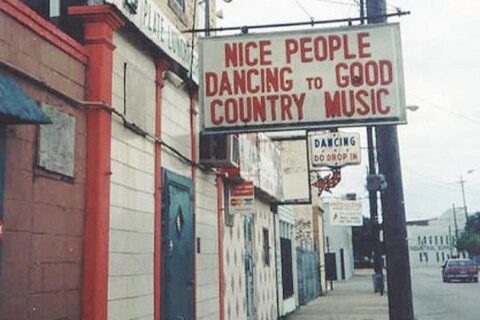I once saw a professor tell a class that if he could live at any point in history, he’d choose today. He followed it up with saying he’d prefer the future, if that were an option, because today is the best things have ever been and they’re only going to get better. I don’t know if he believed it, but it was absolutely an absurd claim to the audience, even at the time. Most of the people in that room had tens of thousands, if not six figures, of debt for a bachelor’s degree they’d never use. Somehow, they were better off than their grandparents, who by their age were married and had a house? They’re better off than people who in many cases grew up in the same home their grandparents grew up in? It’s an absurd claim, not simply for the rootlessness, but also because these kids, like many millennials, will likely never even own a house. They’ll also likely never get married, looking at some of the data that is coming out.
How are we better off than the generations before? Well, we have more “conveniences” but to conflate convenience with better is a mistake. I believe it was Adam Smith, or possibly David Ricardo, who pointed out people will invest in labor saving technologies that end up costing more than the labor they save for the sake of innovation. One example is pagers and cell phones. Such devices were advertised in part to help businessmen feel more at ease taking vacations because if something serious arose, they could be reached. Did this mean they took more vacations? Probably. It also meant that whenever they, or anyone, were not at work, they also were at risk of getting bombarded with messages, so “off” days were not really off.
Entertainment is more available today than it once was. All the entertainment at the touch of a button. Downloading videogames and movies straight to your television or handheld device. Virtual Reality that seems almost real. Next day delivery. What are the issues with these things? Sensory overload is likely one. You have most of the world’s information in your hand, but do you use it to learn or do you just post nonsense for dopamine hits and receive a decreased attention span? Additionally, people get accustomed to quick delivery and so they don’t plan ahead, which can have disastrous outcomes when shortages emerge.
Entertainment is even being used to combat crime, but each of these seems almost a double-edged sword. There’s the obvious police-state element of everyone’s cell phones being tracked but there are more direct things, too. The purported decrease in crime that happened in the 1990s and 2000s correlates with the rise in pornography. This isn’t me just trying to make a connection: an actual argument proposed by psychiatrists to lower sex crimes has been to provide child sex dolls to pedophiles and more pornography to lower the incidence of rape in general. The problem is, even if such things worked, what are the effects of more pornography to the otherwise normal people, that were not at risk of being criminals, but now are exposed and warped by pornography? The percent and frequency of people having sex has gone down as has the fertility rate, as people opt out of dating for fear of rejection to pursue pornography and e-girls who will never say no. There’s also the risk that access to pornography may make you bisexual or gay, which is an obvious peril.
Another convenience of today is nearly omnipresent fast-food restaurants. It allows people to eat cheaply without cooking for themselves and allows absurd libertarians in bow ties a consistently “good” meal. However, it almost certainly is tied to, and a contributing factor of, the lower nutrition and higher obesity rates of people today. People like the option of fast food, but lack the discipline to use it as a rare occurrence, and therefore injure themselves and their families. With all the hormones and artificial chemicals pumped in the food, there’s no telling what impact it has on mental well-being either.
Speaking of health, medicine has “gotten better” but has also gotten more corrupt. Oh, infant mortality is down but abortion is up, so what does that number really mean? The percent of children that die due to factors outside our control has gone down, but has been negated by the percent of children that die because of malice of mothers and doctors. Likewise, over-prescription of medications lead to dependencies, drug addictions, and permanent psychological harm.
Apologists will pretend people are no less happy today than they used to be, there’s just more access to medicine and less of a stigma about psychiatry, but that doesn’t make sense and is a conclusion without evidence. Why would illicit drug use or suicide be on the rise if people used to be more unhappy? This isn’t a new phenomenon due to Covid (though that certainly hasn’t helped). Youth suicide has been steadily increasing since 2007. People often bring up the Great Depression being terrible, and while it likely had a higher suicide rate than today (suicide was a total of 2% of all deaths, which is slightly more than the suicide rate today of about 1.7%), overall life expectancy went up during the Great Depression. It’s been continually going down more recently. Additionally, anyone saying now is the best time to live by comparing the suicide rate with that of a period called the “Great Depression” has a loser of an argument.
But why would we be less happy now than in the past, when we have so many conveniences? This is partly because these things make us unhappy. Part of it is the sensory overload and part of it is that things gained easily are less rewarding. Humans derive meaning from suffering and overcoming. Worded in a different way, Christ even tells us that we can gain great meaning from suffering for, “Blessed are those who are persecuted because of righteousness, for theirs is the kingdom of heaven.”
The modern conveniences destroy you and, “What shall it profit a man, if he shall gain the whole world, but lose his soul?” That is what we get with the modern “conveniences.” We get lower priced goods (in theory) by doing trade with the rest of the world and importing people here, which gets rid of high trust societies, gets rid of high paying jobs, and raises the costs of rent and housing. That’s the cost of the fast food and next day shipping.
This overreliance on convenience is a major part of what makes us weaker and less happy but isn’t the only thing. The lack of a sense of community, tied greatly with the decline in church attendance and the decline of churches that preach the Gospel all feed into one another. The desire for conveniences is used to justify mass immigration, which lowers social trust and a sense of community. Likewise, it’s a lot easier to put down the electronic device you are unwittingly using to make yourself less happy if some friends from church want to go kayaking or hiking.
There’s no simple solution to the evils that plague us, but the first step to any solution is properly identifying the problems. The decadence and technological dependence are certainly major factors in the unhappiness found throughout our current age. Tackling that in tandem with building community should be great initiatives to help rebuild a stronger and happier Southern nation.
A Southern man trying to make a good Southern plan.
Deo vindice!







Nice article brother. Placing in person reality is key. Technology should be used as a tool, but not replacement for community, friendship, and marriage.
This article is on point. We lack struggle, and it is killing us.
Thank you and absolutely. I wouldn’t advocate for getting rid of all technology or being a luddite, but ultimately we should only use technologies to the extent they make us better off and abandon those which don’t.